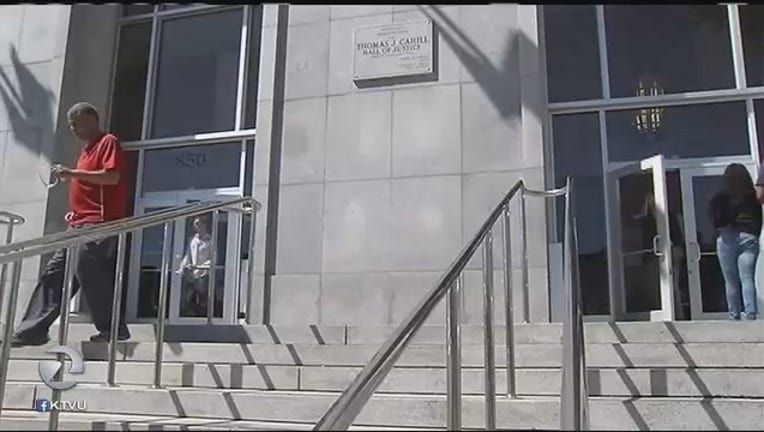Suit against City of San Francisco claims jail inmates were exposed to human waste

San Francisco's Hall of Justice
SAN FRANCISCO (BCN) Persistent sewage problems at the San Francisco Hall of Justice is creating dangerous and unhealthy conditions for prisoners at the building's main jail, according to a class-action lawsuit filed Monday against the city.
The suit, filed by Bay Area civil rights lawyer Yolanda Huang on behalf of seven inmates, seeks $150,000 or more in damages for physical injuries, emotional distress and loss of personal property.
Also named as defendants, Sheriff Vicki Hennessy as well as Undersheriff Matthew Freeman, Chief Deputy Sheriff of Custody Operations Paul Miyamoto and other sheriff's office deputies and staff.
According to Huang, the prisoners in the jail's A-Block, who she claims are only let out of their cells for a few hours a week, frequently experience sewer backups that cause sewage, feces, urine and other
bio-hazardous materials to come from the toilets. Allegedly, at times the sewage simply overflows from the toilets, while other times it explosively sprays out.
"Inmates who have come into physical contact with the sewage have developed skin rashes... intestinal problems, lung problems, breathing problems and headaches. Inmates have slipped and fallen on the sewage and slippery floor, injuring themselves and then contracting skin rashes," Huang said in a statement.
Huang further alleges that when the sewage backflows, inmates are required to yell "water" in order for sheriff's deputies to unlock a closet so they can shut off the entire water system to the A-Block. Inmate workers allegedly must then use blankets to sop up the spilled sewage, with only gloves and no facemasks.
"Once the wet blankets are removed, the inmates who live in these cells are usually required to clean the floors... supplies provided to inmates are inadequate, do not disinfect, and are provided for limited time periods... the floors and furniture inside these cells are never truly disinfected," Huang said. "The foul smell and odors are pervasive. During this entire period, prisoners are forced to remain in their cells (and) forced to eat in their cells while there is sewage on the floors."
Huang also said that once the spilled sewage is sopped up and removed, the water remains off and inmates are unable to use the bathrooms or drink water.
Because of the possibility of bacterial contamination, inmates are often allegedly forced to throw away their personal property, such as commissary items, resulting hundreds of dollars down the drain.
"Being forced to live in this unsanitary, disgusting, nauseating, offensive and outrageous situation is creating severe hardships for the prisoners... some have developed severe psychological stress, including extreme disrepair and suicidal ideation," Huang said.
"The San Francisco Sheriff's Department has not seen this lawsuit yet. This is the first we've heard about it. As a result, we can't comment on the lawsuit at this point," Terry Rather, spokesperson for the sheriff's office, said.
"We have not been served with the lawsuit, and we cannot comment on something we haven't seen," John Cote, spokesman for San Francisco City Attorney Dennis Herrera's office, said.
Built in 1958, the Hall of Justice, which houses the District Attorney's Office, criminal courts and some Police Department offices, has been plagued with sewage and rodent problems over the years.
In January 2017, a raw sewage spill was reported in the District Attorney's Office and forced more than a dozen employees to evacuate.
Citing the health and safety hazards at the building, the Board of Supervisors in October 2017 approved to move the District Attorney's Office to a new location at 350 Rhode Island St. for the next 15 years.

